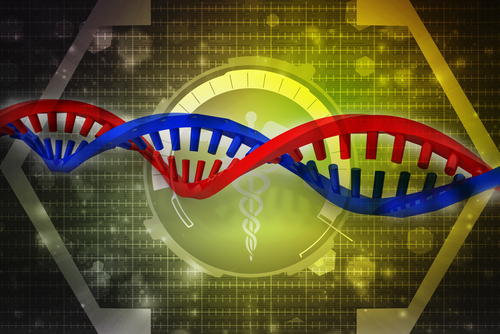A better understanding of how cancer cells control their gene expression to turn on tumor-promoting pathways could help scientists identify vulnerabilities in the process that could lead to therapies.
A professor at the University of California at Merced has been looking for clues by studying non-mutation-based mechanisms that the body uses to control gene expression. Dr. Fabian V. Filipp’s latest study deals with the relationship between these epigenetic events and metabolism, or cells’ conversion of food to energy.
The research, “Crosstalk between epigenetics and metabolism—Yin and Yang of histone demethylases and methyltransferases in cancer,” was published in the journal Briefings in Functional Genomics.
Gene mutations can lead to deregulation of gene expression, uncontrolled growth of cells, and development of cancer. Researchers now know that other mechanisms can modulate gene expression without changes in the genetic code. They call them epigenetic events.
When epigenetic mechanisms are faulty, they can activate tumor-promoting genes, or oncogenes. Or they can inhibit tumor-suppression genes. Either option promotes cancer.
In recent decades, researchers have recognized the importance of these mechanisms in cancer and other diseases. Identifying and understanding epigenetic events has become a major field of research called epigenomics.
Filipp has been looking at the importance of epigenetic events and at enzymes essential to the balance between genes’ on and off states. And he has identified what he calls crosstalk between epigenetic regulators and cancer development mechanisms.
“There is an intriguing crosstalk between metabolism and epigenetics,” he said in a press release. “Although cancer and stem cells can be challenged by chemical inhibition, mechanistic details of how [DNA] and metabolites interact are yet to be defined. With both fields maturing, further synergy between epigenetic and metabolomics [study of metabolism] may deliver new therapeutic agents as well as fundamental insights into how cellular chemistry regulates gene expression.”
Studies analyzing cancer onset and development have shown that the enzyme EZH2, which is involved in epigenetic mechanisms, is overactivated in many cancers, including melanomas and lymphomas. EZH2 activation in cancer is often associated with repression of tumor suppressors and immune evasion, or tumors’ ability to evade an immune response. EZH2 activation is also linked to poor cancer-patient prognosis.
Another enzyme involved in tumor formation is called KDM3A. When deregulated, it activates several pro-cancer genes, promoting cancer onset and progression.
Studies have also shown that tumor cells can use these modulatory events to escape the immune system’s clutches. Understanding how they do this, and identifying the process’s vulnerabilities, could leads to drugs that target the vulnerabilities.
“This can become a paradigm for precision targeting in cancer, where patients with mistuned epigenetics can benefit, and epigenetic inhibition can overcome existing therapy resistance in cancer,” Filipp said.


